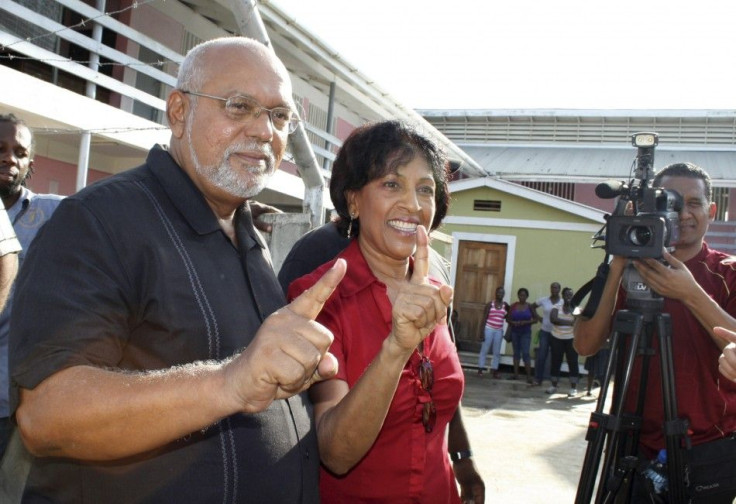Ruling Party Wins Guyanese Election, But Loses Parliamentary Majority

As expected, the incumbent party has won the national elections in the small South American country of Guyana, according to election officials.
Donald Ramotar of the ruling People's Progressive Party (PPP/C) will be the next Guyanese president, scoring the fifth straight such victory for the party.
The Guyana Election Commission stated that the PPP/C won 32 seats in parliament, while the opposition coalition A Partnership for National Unity (APNU) gained 26 seats, and the Alliance for Change (AFC) scored seven seats.
Since the party with the most seats in parliament wins the presidency, Ramotar, the General Secretary of the PPP/C since 1997, will now take over Guyana,
However, PPP/C lost its majority in parliament for the first time in almost two decades, which will likely make it difficult for Ramotar to deal with opposition parties on policy matters.
Politics in Guyana are almost entirely based on race – the ruling PPP/C is supported by the country’s East Indian population, while most opposition groups are favored by the descendants of black Africans.
Since Indians are more numerous than Africans, the PPP/C usually wins national elections.
Tensions over the poll were heightened due to a 24-hour delay in tallying up the votes. In 2001, unrest between the black and Indian ethnic groups in the country persisted for weeks following the election results.
Indeed, after the recent results were announced, supporters of David Granger, the APNU candidate, immediately demonstrated on the streets of the capital Georgetown to protest Ramotar’s triumph.
Ramotar, 61, was the handpicked successor to former President Bharrat Jagdeo, who was barred by the Constitution from running for a third term.
In response to losing the parliamentary majority, Ramotar said we have to work with what we have.
However, political analyst Christopher Ram told the Associated Press said the deadlock in parliament would be a good thing – since it would neutralize efforts by either ethnic group to dominate legislation and policy.
Nonetheless, PPP/C has been credited with pulling Guyana up from the economic chaos in the 1980s and engineering a more stabilized nation with an economy that is growing.
The country’s GDP is expected to expand by 4.5 percent in 2011 and 4.0 percent in 2012, following a 3.6 percent increase in 2010
Former President Jagdeo was also praised for building schools, hospitals and improving the nation’s infrastructure.
The Latin America Monitor commented: “Jagdeo’s sound macroeconomic management and astute diplomacy are boosting Guyana’s prominence…[but the country still suffers from] structural issues ranging from wide ethnic divisions to a relatively weak constitutional framework.”
Guyana is also facing an upsurge in drug-related crime and violence.
Moreover, despite the improving economy and the country’s mineral riches, many Guyanese remain stuck in poverty, while politicians are regarded as corrupt.
© Copyright IBTimes 2024. All rights reserved.











